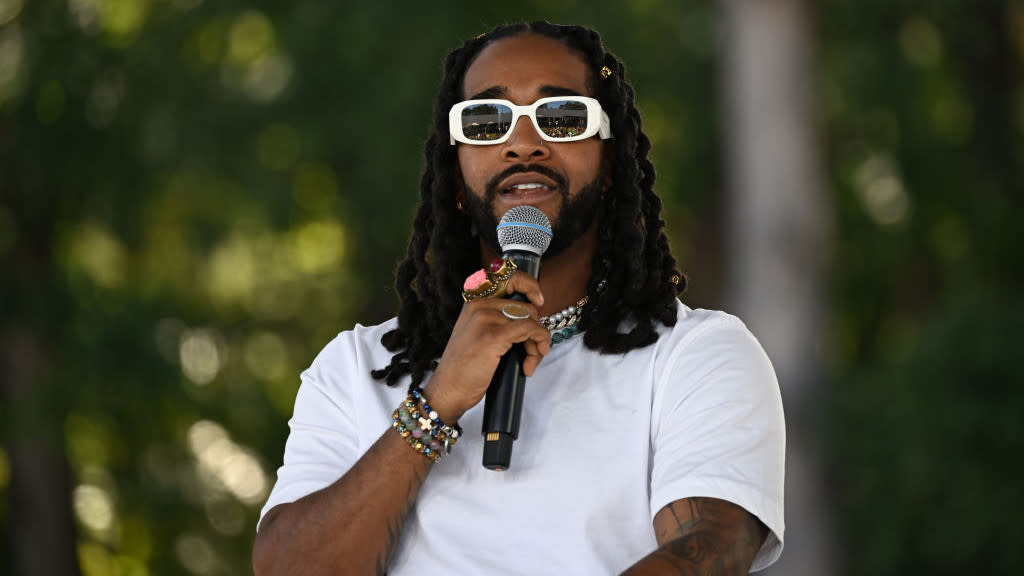Omarion reveals the negative aspects of signing to a major label

Omarion left record labels behind due to the lack of ownership he had with his music.
The former B2K group member was one of the guest speakers on “The Blueprint to Independence” panel at REVOLT WORLD back in September and opened up about this and more. The discussion was moderated by Walter J. Tucker, who’s the global editorial director of hip hop and R&B at Apple, and included other independent artists such as CurrenSy, LaRussell, Larry June, as well as attorney Lisa Bonner. While talking about the pros and cons of signing to major labels, they all agreed there are more advantages to being an indie artist than not.
Since the “Post To Be” singer signed his first record deal at the age of 14, he had much to say about the negative aspects of the business. One of his biggest issues was that he didn’t have any rights to his music.
“I found out that I did not have control over my music, my narrative. I didn’t get to largely enjoy the fruits of my labor, you know? What I found out is that record deals are like that payday loan, and even when you pay them back, you still don’t own your music,” he shared.
He also began to understand how advances work. Omarion broke down the numbers for the crowd and mentioned how his payouts should’ve been more throughout his music career.
”They will advance you money and then pay you artist royalties between 10 percent and 20 percent. And then, they make charges against your account that you don’t know or that you don’t see or approve along with the advance and take from that 10 to 20 percent artist royalty leaving you unrecouped,” he explained.
“I sold millions of records and if you ask the record company today, I’m still unrecouped. You know what I’m saying? When you’re in that position, you need a new advance and they will give you that because they’re enjoying the lion’s share. The 80 percent to 90 percent share that you politely gave away to them and that’s a vicious cycle that I was in for a very, very long time.”
Omarion ended by encouraging attendees to have tough skin and not let hardships deter them from being independent artists because it’s worth it on the other side.
“The other challenging side in developing my independence … this kind of David and Goliath out here,” he said. “You need to get your music, the platform, the visibility, the marketing and promotion … It’s a heavy lift, but they’re in cahoots with the major labels, you know what I’m saying? So it’s tough and as Nip[sey Hussle] said, it’s a marathon. And like Jada [Pinkett-Smith] said, you gotta have gangster persistence if you really want to beat this game. So that’s been my journey.”
Trending Stories
